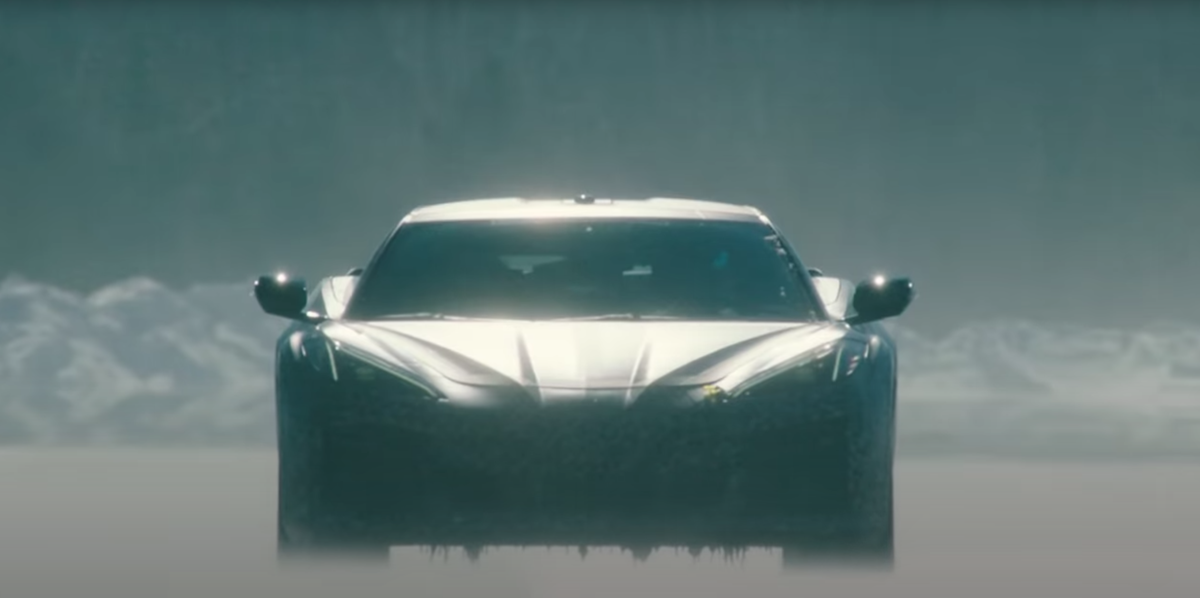Analysis: Why GM is Electrifying the C8 Corvette

The buzz of electricity—figuratively and literally—has swept through the world’s sports-car makers, and the C8 Corvette is about to feel the jolt. The C8 will soon join the many brands turning to electrons to power their hot cars. GM president Mark Reuss has just gone public with what we’ve known for some time: that a hybrid C8 Corvette will be here next year. What no one knew until Reuss revealed it in the same conversation with CNBC reporter Phil LeBeau it is that GM will build an all-electric ‘Vette EV.
Why? For a combination of reasons: the Corvette is the giant killer of sports cars, a vehicle that has become known for delivering the performance and technology of name-brand hotties like Ferrari, Lamborghini, and Porsche for a fraction of their cost. Virtually all of the leading sports-car makers have now committed to building either hybrid or electric models in the near future. Some of the top brands already have hybrids on the market. “The other guys are doing it” is a strong enough reason for electrifying the ‘Vette. It’s the price of keeping up with the competition, capitalizing on the buzz surrounding electric vehicles in general.
The second reason for electrifying the C8 is even simpler: it has the potential to deliver tremendous power and performance along with environmental cred.
GM
The Corvette C8 was designed from the outset to include a hybrid model. The C8’s front compartment is designed to house a module made up of one or two electric motors and associated control hardware. A small battery pack will most likely be located in the car’s central tunnel, which runs through the center of the passenger compartment.
To the best of our knowledge, the hybrid system was originally planned as a “power adder” to the top twin-turbo version of the 5.5-liter flat-plane-crank V-8. With the electric motor driving the front wheels, the C8 would have all-wheel drive, enabling it to use its power—said to approach a total output of near 1000 hp—to deliver staggering straight-line acceleration. Rumor has it that the C8 hybrid was not expected to be able to drive solely on electric power, though that might have changed by now and it might be able to move on electrons for short distances at lower speeds.
Because the hybrid system is essentially a plug-and-play module, it could be added to the base C8 as well, which comes with the 490-hp 6.2-liter LT2 small block pushrod V-8. Now that hybridization is taking hold in the sports car world, this is a strong possibility. Reuss stated that the hybrid ‘Vette will be out “next year.” We expect that that means late in 2023 as a 2024 model.
When asked when the full EV C8 would arrive, Reuss coyly sidestepped the question, essentially saying “somewhere down the road.” We believe that converting the C8 to full electric propulsion will require a massive redesign of the car aft of the seats. There is a vast difference in propulsion systems between the internal-combustion C8s and the EV model.
The revisions include the need to package the large battery required to provide both massive power and reasonable driving range; fitting one or two electric motors in the rear; and packaging the Ultium battery. This battery pack is currently used in larger vehicles including the Hummer EV and upcoming Cadillac Lyriq and it will have to be redesigned to fit within the confines of the two-seat Vette. All this takes time—years rather than months—and then the car will have to be debugged, validated for reliability, and fine-tuned to deliver the superb ride-and-handling balance of the ICE Vettes currently on offer.
While the project is no doubt well underway, we expect a C8 EV to appear around 2024 as a 2025 model at the earliest. While the timeline and the details of the C8 EV are highly speculative at this point, given the current gas-powered Vette’s performance and value we have high hopes that it will retain its giant-killer rep in the EV-sports car world as well.
This content is imported from {embed-name}. You may be able to find the same content in another format, or you may be able to find more information, at their web site.
This content is created and maintained by a third party, and imported onto this page to help users provide their email addresses. You may be able to find more information about this and similar content at piano.io



